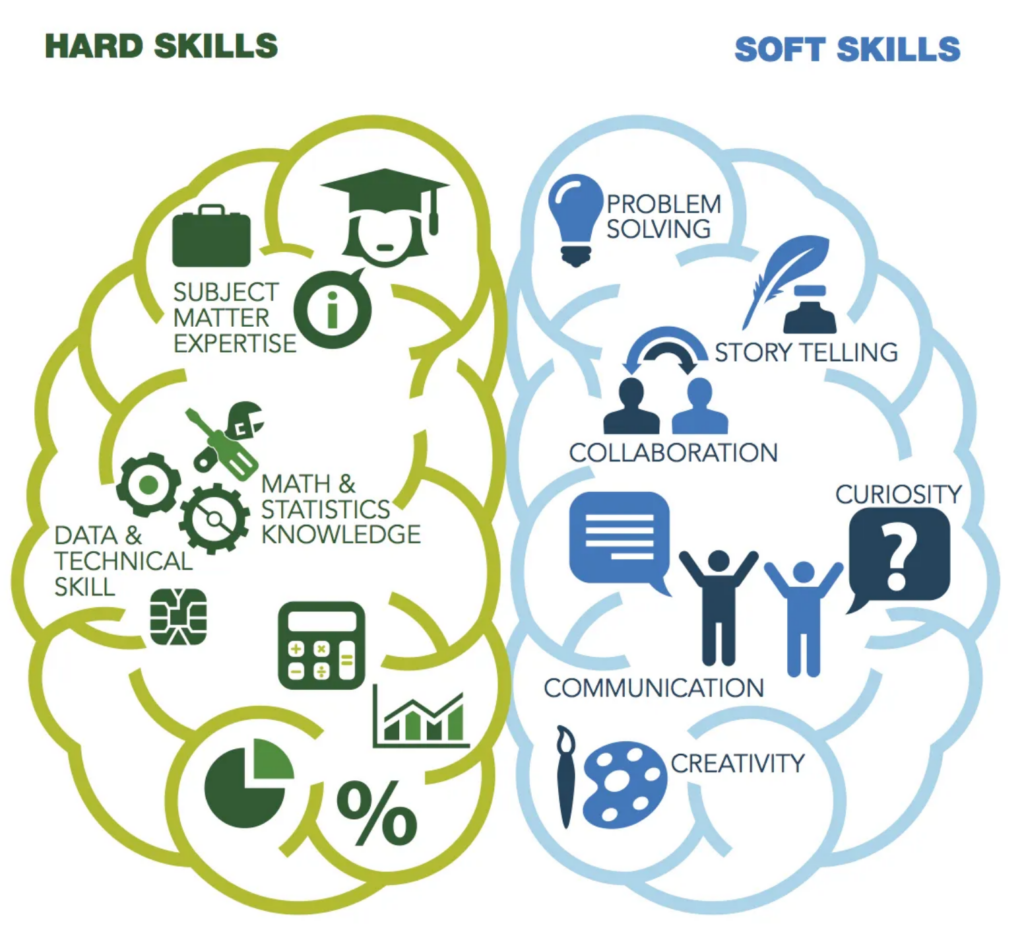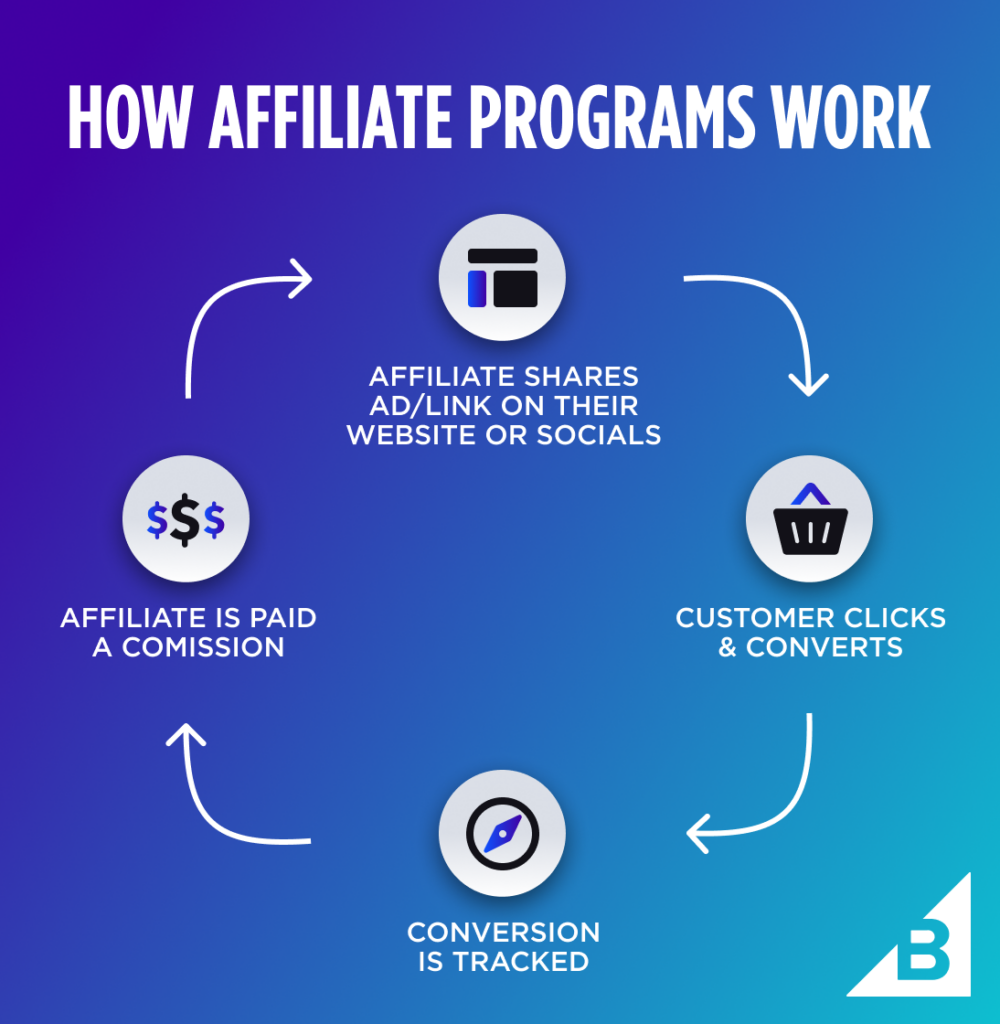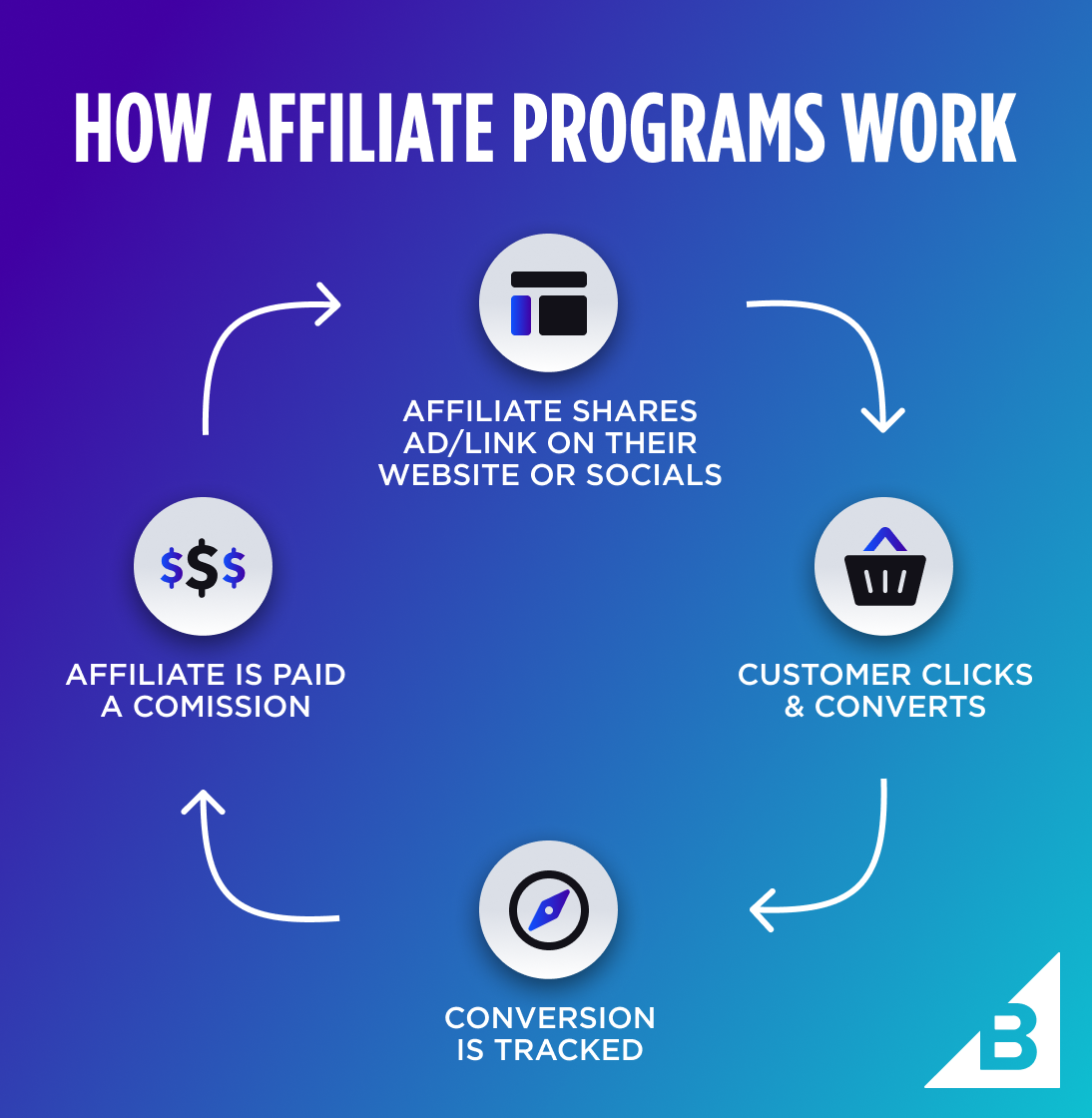Curious about what qualifications you need to become an affiliate marketer? Well, you’ve come to the right place! In this article, we’ll dive into the world of affiliate marketing and explore the skills and knowledge that can set you up for success in this industry. Whether you’re a seasoned marketer looking to expand your horizons or a beginner eager to explore a new career path, we’ll cover everything you need to know to become a successful affiliate marketer.
If you’re wondering how to get started as an affiliate marketer or if you’re already in the field but want to enhance your skills, this article will provide you with all the information you need. We’ll discuss the essential qualifications, such as understanding digital marketing strategies, having excellent communication skills, and having a keen eye for analytics. Additionally, we’ll delve into the importance of building relationships with both merchants and consumers, as well as the value of staying up-to-date with industry trends and technology. So, whether you’re looking for a career switch or simply interested in earning some extra income through affiliate marketing, stay tuned for the rest of the article, as we explore the qualifications you need to succeed in this exciting field! Affiliate marketing has become a popular career choice for individuals seeking a flexible and potentially lucrative source of income. As an affiliate marketer, you can earn commissions by promoting products or services and driving traffic to the advertiser’s website. While anyone can technically start affiliate marketing without formal qualifications, having certain qualifications and skills can greatly enhance your success in this competitive industry. In this article, we will explore the qualifications and skills that are important for aspiring affiliate marketers and how they can contribute to your success.

What is Affiliate Marketing?
Before diving into the qualifications needed for affiliate marketing, let’s first establish a clear understanding of what affiliate marketing actually is. Affiliate marketing is a performance-based marketing strategy where an affiliate (you) promotes a product or service through various channels, such as a website, blog, or social media. When a visitor or customer makes a purchase or performs a desired action, such as filling out a form, the affiliate earns a commission from the advertiser.
Definition of Affiliate Marketing
Affiliate marketing is a type of marketing where affiliates promote products or services in exchange for a commission based on the sales or leads they generate for the advertiser.
How Affiliate Marketing Works
Affiliate marketing works through a process involving four key players: the affiliate, the advertiser, the network, and the customer. The affiliate promotes the advertiser’s product or service through their own marketing efforts. When a customer makes a purchase or performs a desired action through the affiliate’s unique affiliate link, the network tracks the conversion and attributes the commission to the affiliate.
Importance of Qualifications in Affiliate Marketing
While affiliate marketing does not require formal qualifications like some professions, having certain qualifications can greatly enhance your chances of success. Qualifications can provide you with the necessary knowledge, skills, and credibility to stand out in the highly competitive affiliate marketing industry.
Why Qualifications Matter in Affiliate Marketing
Having qualifications in affiliate marketing is important for several reasons. Firstly, qualifications provide you with a solid foundation of knowledge and skills that can help you understand the complexities of affiliate marketing. Secondly, qualifications demonstrate your commitment to the field and your willingness to invest time and effort into your craft. Lastly, qualifications can enhance your credibility and make you a trusted authority in your niche, attracting more opportunities and partnerships.
Benefits of Having Qualifications as an Affiliate Marketer
Having qualifications as an affiliate marketer comes with several benefits. Firstly, qualifications can provide you with a competitive edge over other affiliates. With a strong educational background and certifications, you can demonstrate your expertise and professionalism to potential advertisers. Secondly, qualifications can open doors to higher-paying affiliate programs and partnerships with well-established brands. Advertisers are more likely to collaborate with affiliates who have proven qualifications and a track record of success. Lastly, qualifications can improve your overall marketing skills, enabling you to create more effective strategies and generate higher conversions.
Essential Skills for Affiliate Marketers
While qualifications can provide you with the foundation to succeed in affiliate marketing, it’s important to develop and hone specific skills that are essential in this field. Let’s explore some of the key skills that every affiliate marketer should possess.
Digital Marketing Skills
To thrive in affiliate marketing, you need to have a strong understanding of digital marketing strategies and techniques. This includes knowledge of search engine optimization (SEO), social media marketing, email marketing, content marketing, and paid advertising. By mastering these skills, you can effectively drive traffic to your affiliate offers and increase your chances of conversions.
Sales and Negotiation Skills
Affiliate marketing is essentially a form of sales, and as an affiliate marketer, you need to be skilled in the art of persuasion and negotiation. You should be able to create compelling content that convinces your audience to take action and effectively negotiate deals with advertisers to secure favorable commissions and partnerships.
Copywriting and Content Creation Skills
Good copywriting and content creation skills are essential for capturing and engaging your target audience. You need to be able to create compelling and persuasive content that convinces your audience to click on your affiliate links and make a purchase. The ability to write high-quality blog articles, engaging social media posts, and persuasive product reviews can greatly enhance your chances of success as an affiliate marketer.
Educational Background and Certifications
While formal education is not a strict requirement for affiliate marketing, having a relevant educational background can provide you with a strong foundation of knowledge and skills. Here are some educational qualifications that can benefit aspiring affiliate marketers.
Business or Marketing Degree
A degree in business or marketing can provide you with a comprehensive understanding of marketing principles, consumer behavior, and business strategies. This knowledge can be applied directly to your affiliate marketing efforts, helping you make informed decisions and develop effective marketing strategies.
Online Marketing Courses
If obtaining a degree is not feasible for you, there are numerous online marketing courses available that can provide you with valuable knowledge and skills. These courses cover topics such as SEO, social media marketing, content marketing, and affiliate marketing strategies. Completing these courses can help you stay updated with industry trends and equip you with practical skills that are essential for success in affiliate marketing.
Affiliate Marketing Certifications
Obtaining affiliate marketing certifications can further enhance your credibility and demonstrate your expertise to potential advertisers. There are various certification programs offered by reputable organizations and platforms, such as the Affiliate Marketing Certification from the Online Marketing Institute and the Affiliate Marketing Professional Certification from the Performance Marketing Association. These certifications validate your knowledge and skills in affiliate marketing and can increase your chances of attracting high-paying affiliate programs.

Proficiency in Technology and Analytical Tools
Affiliate marketing is closely tied to technology, and as an affiliate marketer, you need to be proficient in using various tools and platforms to optimize your campaigns and track your results.
Understanding Web Analytics
Web analytics tools, such as Google Analytics, provide valuable insights into your website’s performance, visitor behavior, and conversions. By understanding how to use these tools effectively, you can make data-driven decisions and continuously improve your affiliate marketing strategies.
SEO and Keyword Research Skills
Search engine optimization (SEO) is crucial for driving organic traffic to your website or blog. By conducting thorough keyword research and optimizing your content for search engines, you can increase your visibility and attract targeted traffic to your affiliate offers.
Ability to Use Affiliate Tracking Software
Affiliate tracking software allows you to track and monitor the performance of your affiliate campaigns. It provides you with valuable data, such as clicks, conversions, and revenue, which can help you optimize your campaigns and maximize your earnings. Being proficient in using affiliate tracking software is essential for effectively managing and scaling your affiliate marketing efforts.
Knowledge of Target Audience and Niche Markets
To succeed in affiliate marketing, you need to have a deep understanding of your target audience and the niche markets you operate in. This knowledge will allow you to tailor your marketing strategies and content to resonate with your audience and increase your chances of conversions.
Market Research Skills
Effective market research involves understanding your target audience’s needs, preferences, and pain points. By conducting thorough market research, you can identify profitable niches, uncover consumer trends, and create highly targeted marketing campaigns.
Understanding Consumer Behavior
Understanding consumer behavior is key to effectively promoting products or services as an affiliate marketer. By knowing what motivates your target audience to make a purchase, you can create content and marketing messages that resonate with them, ultimately increasing your chances of conversions.
Identifying Profitable Niche Markets
Identifying profitable niche markets is crucial for success in affiliate marketing. By focusing on a specific niche, you can position yourself as an expert and attract a more targeted audience. Conducting market research and identifying niche markets with high demand and low competition can give you a competitive advantage and increase your chances of success.

Ability to Build and Maintain Relationships
Building strong relationships with advertisers and merchants is essential for long-term success in affiliate marketing. Here are some skills that can help you foster positive relationships and collaborations.
Networking and Communication Skills
Networking and effective communication skills are key to building relationships with advertisers and merchants. Attending industry events, joining affiliate marketing communities, and actively engaging with others in the field can help you establish connections and gain valuable insights from experienced marketers.
Negotiation and Relationship Building Skills
Negotiation skills are essential when it comes to securing favorable commissions and partnership terms with advertisers. Being able to effectively communicate your value as an affiliate and negotiate mutually beneficial agreements is crucial for long-term success. Additionally, building strong relationships with advertisers and merchants based on trust and mutual respect can lead to more opportunities and collaborations in the future.
Collaboration with Advertisers and Merchants
Collaborating with advertisers and merchants can provide you with additional resources and support for your affiliate marketing efforts. By effectively collaborating, you can gain access to exclusive offers, promotional materials, and valuable insights from the advertisers themselves. Building strong relationships with advertisers and merchants can also open doors to joint marketing campaigns and other mutually beneficial initiatives.
Time Management and Organizational Skills
Effective time management and organizational skills are crucial for affiliate marketers, as this field requires managing multiple campaigns, tracking results, and staying organized in a dynamic digital environment.
Effective Time Management Strategies
Developing effective time management strategies involves setting priorities, establishing a schedule, and maximizing productivity. By effectively managing your time, you can ensure that your affiliate marketing efforts are focused on activities that generate the highest ROI.
Prioritization and Planning Techniques
Prioritization and planning are crucial for staying organized and ensuring that you meet your affiliate marketing goals. By identifying the most important tasks and mapping out a plan, you can stay on track and make progress towards your objectives.
Staying Organized in a Dynamic Digital Environment
Affiliate marketing involves juggling multiple campaigns, tracking results, and managing various digital assets. Staying organized in this dynamic environment requires using tools and systems that help you stay on top of your tasks, deadlines, and campaign performance. Utilizing tools such as project management software, content calendars, and automation platforms can help you stay organized and efficient.

Continuous Learning and Adaptability
The affiliate marketing landscape is constantly evolving, and it’s crucial for affiliate marketers to stay up-to-date with industry trends and adapt their strategies accordingly.
Keeping Up with Industry Trends
Staying informed about the latest industry trends and changes is essential for staying ahead of the competition. By regularly reading industry publications, attending webinars, and following influential marketers, you can stay informed about the latest strategies and techniques in affiliate marketing.
Experimentation and Testing Strategies
Experimentation and testing are essential for optimizing your affiliate marketing campaigns. By consistently testing different strategies, creatives, and approaches, you can identify what works best for your target audience and continuously improve your conversions.
Adapting to Changes in Affiliate Marketing Landscape
Affiliate marketing is highly influenced by changes in technology, consumer behavior, and advertising regulations. Being adaptable and proactive in embracing these changes is crucial for long-term success. By monitoring industry changes and promptly adjusting your strategies, you can stay ahead of the curve and maintain a competitive edge.
Ethical and Legal Awareness
Ethical conduct and compliance with advertising laws and regulations are important for maintaining your credibility as an affiliate marketer.
Knowledge of Advertising Laws and Regulations
Affiliate marketers need to be aware of and comply with advertising laws and regulations in the countries they operate. This includes disclosing affiliate relationships, adhering to fair advertising practices, and avoiding deceptive or misleading marketing tactics.
Avoiding Fraudulent Activities
Unfortunately, the affiliate marketing industry has its fair share of fraudulent activities. As an affiliate marketer, it’s crucial to maintain integrity and avoid engaging in any fraudulent practices, such as cookie stuffing, spamming, or using misleading claims to promote products or services.
Ensuring Transparency for Users
Transparency is key to building trust with your audience. By clearly disclosing your affiliate relationships and providing honest and unbiased recommendations, you can establish yourself as a reputable affiliate marketer who genuinely cares about their audience’s best interests.

Building a Strong Personal Brand
Building a strong personal brand can set you apart from other affiliate marketers and establish you as a trusted authority in your niche.
Creating an Authentic Online Persona
Authenticity is crucial when it comes to building a personal brand. By being genuine, transparent, and consistent in your online persona and interactions, you can attract a loyal following and establish trust with your audience.
Developing Trust and Credibility with Audience
Building trust and credibility with your audience involves consistently delivering valuable content, providing unbiased recommendations, and being responsive to their needs and concerns. By being a reliable source of information and support, you can develop a strong bond with your audience and increase their likelihood of purchasing through your affiliate links.
Establishing Yourself as an Expert
Positioning yourself as an expert in your niche can greatly enhance your success as an affiliate marketer. By consistently sharing valuable insights, conducting in-depth reviews, and providing unique perspectives, you can establish yourself as a go-to resource for your audience. This can attract more opportunities and collaborations with advertisers, as they seek to partner with knowledgeable and influential affiliates.
Networking and Mentorship
Networking and seeking guidance from experienced affiliate marketers can provide invaluable support and insights for your affiliate marketing journey.
Joining Affiliate Marketing Communities
Joining affiliate marketing communities, both online and offline, can connect you with like-minded individuals and experienced marketers. These communities provide opportunities for networking, knowledge sharing, and accessing resources and support. Participating actively in these communities can help you stay motivated, inspired, and up-to-date with the latest industry trends.
Seeking Guidance from Experienced Marketers
Learning from experienced marketers can provide you with valuable insights and guidance that can fast-track your success. Seek out mentors or industry experts who have achieved significant success in affiliate marketing and learn from their experiences. Their guidance can save you time and help you avoid common pitfalls.
Learning from Success Stories and Case Studies
Success stories and case studies can provide inspiration and practical insights into what works in affiliate marketing. They highlight successful strategies, tactics, and approaches that you can apply to your own affiliate marketing efforts. Learning from real-world examples can help you discover new ideas and approaches that can elevate your affiliate marketing campaigns.
Persistence and Determination
Affiliate marketing is not a get-rich-quick scheme, and success often comes with persistent effort, determination, and the ability to overcome challenges and failures.
Overcoming Challenges and Failure
Like any other business venture, affiliate marketing comes with its fair share of challenges and failures. It’s important to approach these setbacks as learning opportunities rather than roadblocks. By learning from your mistakes, persevering through challenges, and continuously improving your strategies, you can overcome obstacles and achieve long-term success.
Staying Motivated in a Competitive Industry
The affiliate marketing industry can be highly competitive, and it’s crucial to stay motivated and focused on your goals. Setting realistic expectations, celebrating small wins, and staying inspired by the success of others can help you maintain motivation and overcome any obstacles or setbacks along the way.
Setting Realistic Goals and Working Towards Them
Setting clear, realistic goals is key to achieving success in affiliate marketing. By defining your objectives and breaking them down into actionable steps, you can stay focused and work towards achieving your goals. Regularly reviewing your progress and adjusting your strategies can help you stay on track and ensure that you are moving towards your desired outcomes.
Conclusion
In conclusion, while affiliate marketing does not require formal qualifications, having the right qualifications and skills can greatly enhance your chances of success. By possessing a strong educational background, certifications, and essential skills such as digital marketing, sales, and copywriting, you can differentiate yourself from other affiliate marketers and attract higher-paying opportunities. Proficiency in technology and analytical tools, knowledge of your target audience and niche markets, and the ability to build and maintain relationships are also crucial for success. Additionally, adopting a mindset of continuous learning and adaptability, while maintaining ethical and legal awareness, can set you apart in the dynamic affiliate marketing landscape. By building a strong personal brand, seeking mentorship, and embracing persistence and determination, you can position yourself for long-term success as an affiliate marketer.
So, if you are considering a career in affiliate marketing, focus on developing the right qualifications and skills, and remember to stay committed, adaptable, and persistent. With the right mindset and dedication, you can achieve your goals and create a successful and fulfilling career as an affiliate marketer.
